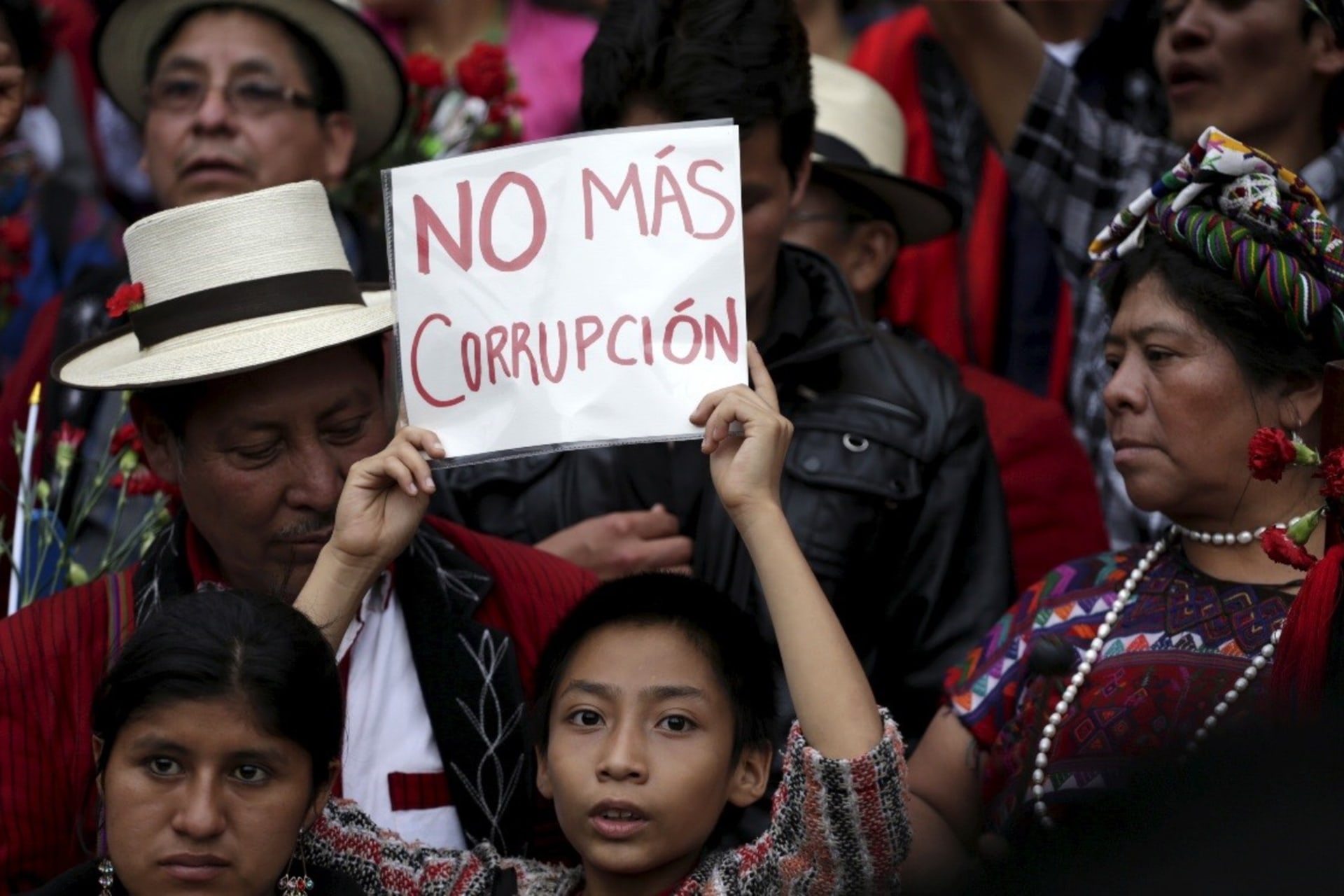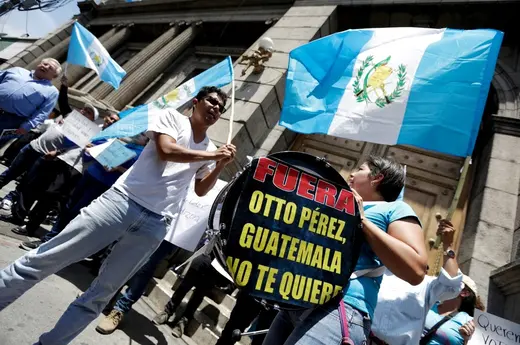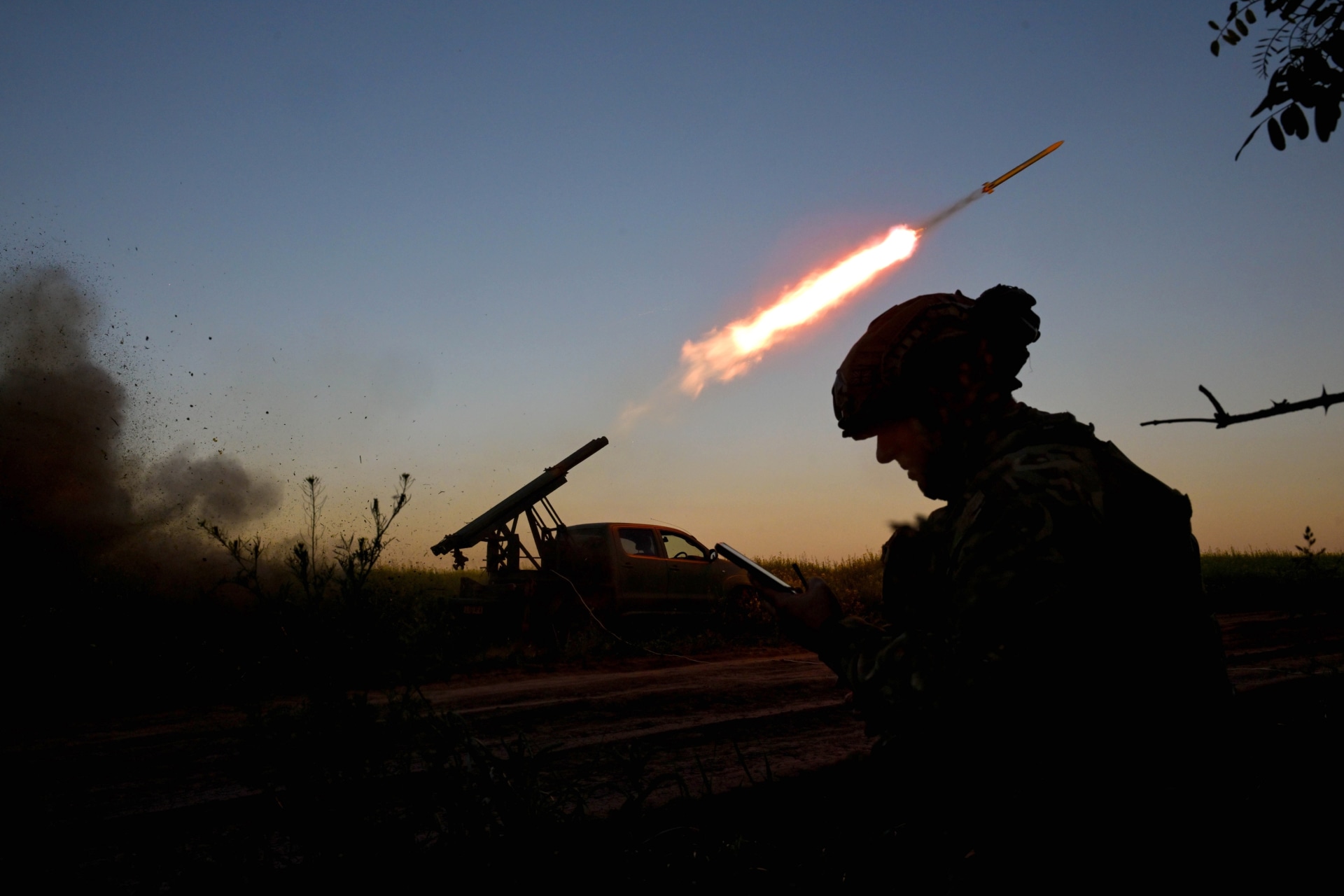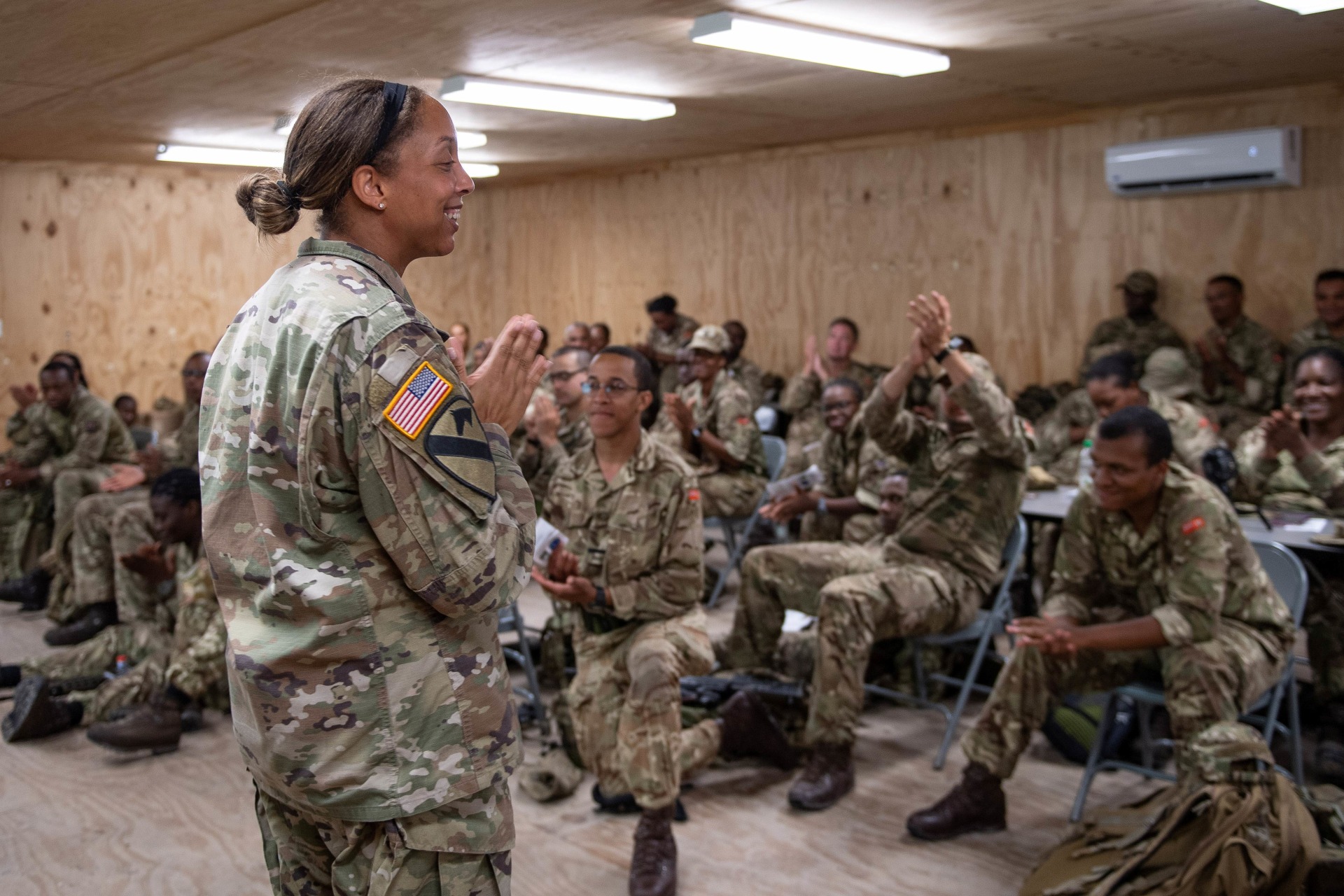Lessons From Guatemala’s Commission Against Impunity

Overview
What other countries can learn from CICIG’s first decade.
BY
- Matthew M. TaylorAdjunct Senior Fellow for Latin America Studies
Guatemala has made notable gains in the fight against corruption and impunity in the last decade. President Otto Perez Molina resigned in 2015 and was tried and jailed on charges of corruption, alongside his vice president and several ministers. Several prominent criminal figures have been extradited to the United States, including another former president, Alfonso Portillo. Supreme Court justices and members of congress have been removed from office, drug lords jailed, and extortion rings dismantled. The overall impunity rate for homicides fell from 95 percent to 72 percent [PDF] between 2006 and 2012.
Central to these efforts is the International Commission Against Impunity in Guatemala (known by its Spanish acronym, CICIG), an independent body with investigative and prosecutorial powers set up by the United Nations and Guatemala. Headed by an appointee of the UN secretary-general with funding and staff from several donor countries, it has slowly grown in power and capacity, cooperating successfully with local prosecutors in cases against high-level political figures, as well as in drafting important criminal justice reforms. In an environment marked by weak institutions and extensive impunity, CICIG has been an extraordinary governance innovation.
Guatemala’s progress has led many to conclude that CICIG can serve as a role model for other poor countries seeking to strengthen local judicial institutions and combat crime and impunity. Already, CICIG has inspired an internationally funded mission to fight corruption in Honduras, the Support Mission Against Corruption and Impunity in Honduras (MACCIH). Panamanian authorities have called for a similar body, and one former CICIG commissioner recommended creating a similar institution for the entire Central American region. But for all its accomplishments, CICIG has not spurred widespread or lasting rule of law in Guatemala. The CICIG experience thus provides lessons for policymakers in the United States and other donor nations as they contemplate creating similar structures to fight corruption in aid recipient countries.
A Brief History of CICIG
CICIG was created in a 2006 agreement between the Guatemalan government and the United Nations and was ratified by the Guatemalan legislature in the wake of a massive police scandal in 2007. That scandal, along with allegations of corruption at the highest levels of government, helped drive a national consensus that international support was necessary to reestablish the rule of law. CICIG was originally designed to dismantle Guatemala’s so-called illegal clandestine security apparatuses, bodies that had many ties to the state but also committed extrajudicial killings and human rights abuses. Though not explicitly part of its original mandate, corruption became the focus of CICIG, in part because corruption was a common denominator in many of its cases.
Polls show that CICIG today is Guatemala’s most trusted institution.
CICIG’s success stems from its ability to hold powerful political, economic, and criminal interests at bay while creating space for a competent and independent prosecutorial service to emerge. Its unique structure combines international backing, the independence to investigate cases, and local embedded partnerships with the Guatemalan attorney general’s office. In an effort to assuage sovereignty concerns, CICIG’s mandate requires it to work as a “complementary prosecutor” alongside the attorney general’s office.
CICIG has benefited from strong leadership and a skilled staff. Its ability to help convict and exonerate political figures built its legitimacy among Guatemalans. Not only has CICIG been a central actor in convicting leading political figures, but it also exonerated a sitting president framed in the Rosenberg murder-suicide, a major case that built the commission’s reputation. Its numerous high-profile successes brought it both international acclaim and domestic support, and polls show [Spanish] that CICIG today is Guatemala’s most trusted institution.
CICIG has contributed to judicial reform in a variety of ways. One of its first acts was to push for the creation of a dedicated division within the prosecutorial service (Fiscalia Especial Contra la Impunidad, or FECI) to be its domestic partner on prosecutions. Together with FECI and other local allies, CICIG has succeeded in pushing forward criminal justice reforms including plea bargaining, witness protection, wiretapping, and anticorruption laws, as well as the creation of high-security courts for prosecuting cases against powerful and potentially dangerous individuals. It then used these instruments effectively to take on systematic graft and corruption.
CICIG has also been central in drawing attention to the weaknesses of the Guatemalan judicial system, for example, through its repeated criticism of the unscrupulous appointment process for Supreme Court justices. Further, it has played an important role in drafting remedies for these problems, including pending constitutional reforms [Spanish] to secure legislative oversight of the selection process for judges and prosecutors, to ensure judges are qualified and free from political interference, and to improve access to justice, especially for indigenous groups.
CICIG has been supported from the outset by civil society organizations, and has been sustained over the years by broad popular support for its work. Guatemalan civil society groups pressed the Guatemalan state and international donors to create CICIG, pushing the idea of an international body through complex negotiations that spanned three presidential administrations. Once CICIG was created, civil society groups were crucial in defending it. At critical moments over the past ten years, civil society organizations protested the removal of important judges and a well-regarded attorney general, served as watchdogs over judicial appointments, and mobilized to maintain CICIG’s very existence.
Mandates, Funding, and Other Challenges
Although CICIG has investigated or helped prosecute several hundred cases, it has limitations. Its two-year renewable mandate forces staff members to expend considerable effort to sustain the commission, distracting them from their efforts to fight impunity through reform and prosecution. The agreement has now been renewed on five occasions, including by presidents who were under investigation, but Guatemalan presidents have often signaled their opposition to extending the commission’s mandate. The current mandate expires in 2019, suggesting a new battle for renewal will soon be underway. CICIG should not be a permanent body—that would obviate its goal of helping Guatemala build strong domestic legal institutions—but the constant battle for extensions is a distraction from its more serious work.
CICIG leaders also must seek funding abroad. While relatively inexpensive at around $15 million annually, CICIG has little certainty about the long-term budgetary support for its two-hundred person staff. An associated challenge is that funders can be too eager to see results, a tendency that may conflict with the painstakingly slow process of constructing rule of law institutions. To date, the donor community has been patient in awaiting the results of an institution-building process that may take decades. The United States, in particular, has taken a largely hands-off approach to CICIG’s work. However, the United States has stepped in at crucial moments to support the commission, as when Washington exerted heavy pressure on then President Perez Molina to extend the body’s mandate in 2015, even as he was under threat from the investigation that ultimately led to his resignation and imprisonment. Maintaining this difficult balance between affording independence and applying pressure can be challenging for the donor community.
Another challenge is that adopting a body like CICIG requires domestic elites to accept international intervention. In the Guatemalan case, this was only possible because massive scandals drove a national consensus that only an independent international body could overcome entrenched criminal interests. Once in place, though, international donors have few effective instruments to pressure the Guatemalan government to carry forward reform, and the instruments they do have may prove counterproductive. For example, the 2016 U.S. Strategy for Engagement in Central America significantly boosted aid to the region to $750 billion, but the legislation authorizes Congress to withhold up to 75 percent of this funding if these countries do not take effective steps to address rule of law challenges. Cuts to funds due to Guatemala’s slow progress on constitutional reforms would weaken CICIG’s counterparts in the attorney general’s office, police, and courts—the same legal institutions that are needed to fight corruption and illegal actors.
CICIG’s successes highlight the fundamental weakness of Guatemala’s domestic justice institutions. While the elite group of prosecutors that partners with CICIG within the attorney general’s office has demonstrated capacity, the broader office is overstretched, underfunded, and absent in much of the country. The police and judiciary remain weak and susceptible to corruption. CICIG has not transformed the system or strengthened it enough to stand on its own. The central challenge is to phase out CICIG in a way that enables local capacity to develop but does not prematurely remove the external technical support and accountability that local judicial actors and civil society have come to rely on over the past decade.

What to Learn From CICIG
Guatemala’s gains show that international bodies like CICIG can be a valuable tool. Already touted [PDF] as a model for Honduras’s MACCIH, CICIG could serve as a prototype for reform elsewhere in Latin America, Africa, or Southeast Asia. But the difficulties that CICIG has faced in resolving Guatemala’s rule of law challenges suggest a few lessons about how U.S. policymakers could make future bodies more effective:
- Ensure a long mandate and long-term funding. In creating a body like CICIG, policymakers should ensure that is financially sustainable and help insulate it from politics by extending its mandate beyond presidential terms and staggering the renewal against the electoral calendar. A four- or five-year term that overlaps with the presidential term of office, and is fully funded by donors for the entire term, would be preferable to the CICIG model.
- Prioritize rule of law efforts in foreign policy–making. Corruption is a fundamental challenge in many countries, and is an enabler of a host of other criminal activities. But anticorruption is often not a top priority for the U.S. government, and can easily be ignored in favor of more immediate counter-narcotics, security, or immigration concerns. Often, the need to obtain concrete results on these pressing items actively undermines efforts to build the rule of law. For instance, evidence of corruption that could incriminate high-level officials is not shared with local law enforcement if the officials are seen as useful allies in meeting immediate security objectives. For CICIG-like bodies to be effective in building the rule of law, the long-term development of justice institutions needs to be elevated to the top tier of priorities for U.S. policymakers, weighted more heavily than more immediate bureaucratic objectives.
- Strategically coordinate independent commissions with other aid efforts. A CICIG-like body is a useful spearhead to bring justice to individual cases and send the important message that elites will be held accountable for corruption. But alone, it is not enough. Real long-term progress requires a comprehensive strategy to build domestic institutional capacity. An international prosecutorial body should be combined with U.S. Agency for International Development (USAID) capacity-building and training for civil servants, civil society, and the media, as well as institutional partnerships across police forces and judicial institutions in donor and recipient countries. Rule of law assistance should be integrated into the domestic legal and political framework of the recipient country. Meanwhile, the various U.S. government agencies involved in the rule of law effort should strategically coordinate their efforts in the recipient country to ensure that they build constructively on each other.
Bodies such as CICIG can help combat deeply embedded criminal networks that threaten economic development, the rule of law, and the sustainability of fledgling democracies. But they are not a panacea, and their effectiveness will require a strategic approach that prioritizes the long-term development of home-grown capacity.t





